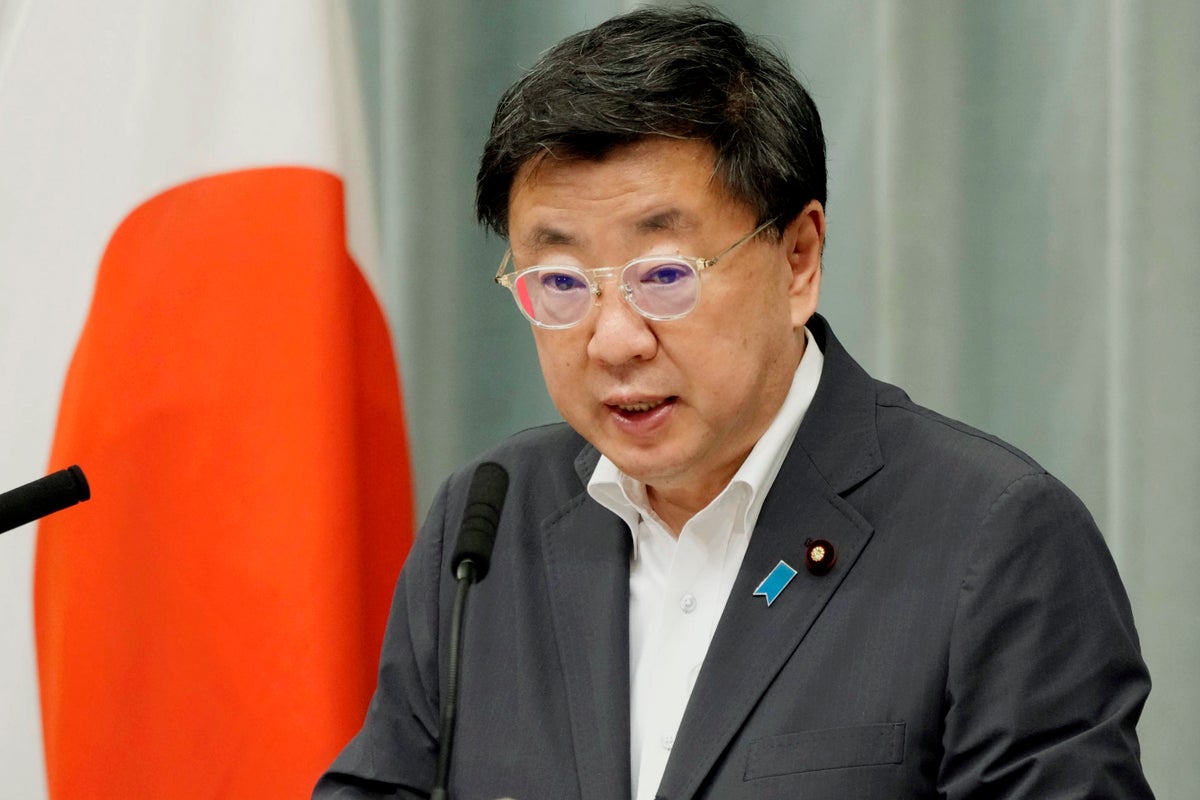
Japan on Friday approved additional sanctions against Russia over its war on Ukraine, including freezing the assets of dozens of individuals and groups and banning exports to Russian military-related organizations.
Chief Cabinet Secretary Hirokazu Matsuno told reporters the Cabinet approval shows Japan is in step with the rest of the Group of Seven countries that agreed during their summit in Hiroshima last week to maintain and strengthen sanctions against Russia.
He said Japan is committed to working with other G7 countries and the broader international community “to improve the situation” for Ukraine.
Matsuno also sharply criticized the signing of a deal between Russia and Belarus on Thursday formalizing the deployment of Moscow’s tactical nuclear weapons in its ally’s territory as a move that “further escalate tensions.”
“As the world’s only country to have suffered nuclear attacks, Japan finds Russia’s threats of nuclear weapons and their use absolutely impermissible,” Matsuno said. “Japan’s government demands Russia and Belarus stop actions that further escalate tensions as we continue to watch the development with strong concern.”
Japan’s additional sanctions and export restrictions reflect the G7's aim to prevent the evasion of sanctions by third countries and include a ban on exporting materials that would help strengthen Russia's industrial base, Matsuno said.
According to a statement jointly issued by the foreign, trade and finance ministries, 24 individuals and 78 organizations were added to a list of those subject to asset freezes, including those who allegedly helped to divert and evade sanctions.
Japan also imposed an export ban on 80 Russian military-related organizations, including machinery makers. The provision of construction, engineering and other services for Russia will also be banned.
Japan has been closely cooperating with the G7 to impose sanctions against Russia over its war on Ukraine amid growing concern about the conflict's impact in Asia, where China has been expanding its military presence and threatening to use force to exert its control over self-governed Taiwan.







